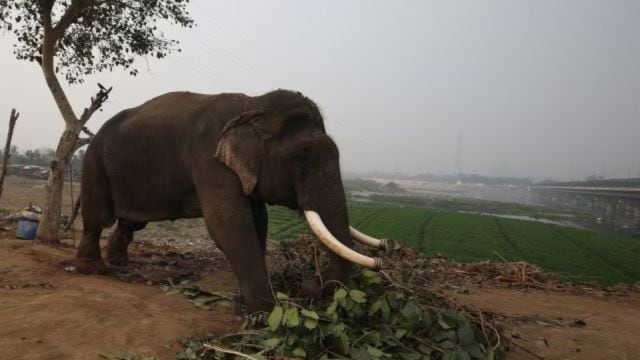3 elephant tusks recovered from house at Tripura’s Unakoti, suspect absconding
The Tripura Police lodged a case against the owner of the house in the Unakoti district after recovering elephant tusks.
 According to a report by the state forest department from a few years ago, Tripura has 102 elephants, including 42 wild elephants and 60 in captivity. (Image: Representative Photo/File)
According to a report by the state forest department from a few years ago, Tripura has 102 elephants, including 42 wild elephants and 60 in captivity. (Image: Representative Photo/File)The Tripura Police filed a case and began a probe after the recovery of three elephant tusks from a house at Kailasahar in the Unakoti district Saturday. No one has been arrested in this case as of now. The police said they recovered these tusks following a raid conducted at one Ayub Ali’s house in the evening based on secret information.
Ali, aged between 35 and 40 years old, was known to be an electrician. The police said he escaped from the house before they arrived. “A case was lodged against him. We will soon arrest him”, said a police officer, adding that they are investigating to find more details about the tusks. The tusks are currently in police custody for investigation.
In January this year, the police lodged a case after the carcass of an elephant with a few body parts missing was recovered from the Pramodenagar area under the Kalyanpur Forest Division, falling under the Teliamura sub-division in Khowai district of Tripura.
According to a report by the state forest department from a few years ago, Tripura has 102 elephants, including 42 wild elephants and 60 in captivity. A new elephant survey was undertaken in March 2022, but the reports could not be finalised since a Covid lockdown was imposed soon after.
Tripura villages have seen frequent elephant-human conflicts. As part of setting up natural defence mechanisms for villagers, the state government started a project to keep bees in agricultural fields to thwart elephant attacks, as jumbos are known to fear stingy insects.
The government initiated projects to cultivate elephant fodder in the jungles, including the planting of bamboo and bananas, the establishment of watering holes, and the construction of other infrastructure as part of the check dams built in the forests.







